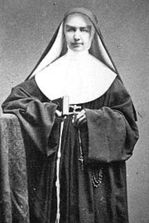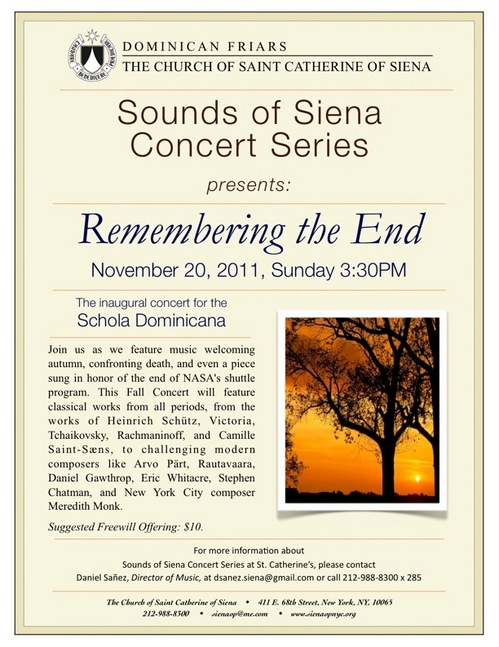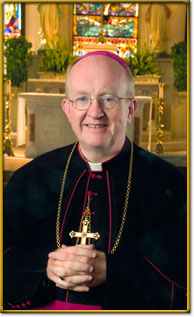 At the general assembly of the US Bishops today, Cardinal Donald Wuerl, Archbishop of Washington, DC, announced the Vatican appointment of Bishop Kevin W. Vann, Bishop of Fort Worth Texas, to be the Ecclesiastical Delegate for the Pastoral Provision (in effect since 1981). Vann succeeds Archbishop John J. Myers of Newark. Vann will oversee the the formation and admittance of former Anglican clergy to the Roman Church. He will work closely with Cardinal Wuerl who has oversight of the temporary church structure of the Anglican Ordinariate in the USA.
At the general assembly of the US Bishops today, Cardinal Donald Wuerl, Archbishop of Washington, DC, announced the Vatican appointment of Bishop Kevin W. Vann, Bishop of Fort Worth Texas, to be the Ecclesiastical Delegate for the Pastoral Provision (in effect since 1981). Vann succeeds Archbishop John J. Myers of Newark. Vann will oversee the the formation and admittance of former Anglican clergy to the Roman Church. He will work closely with Cardinal Wuerl who has oversight of the temporary church structure of the Anglican Ordinariate in the USA.
Saint Albert the Great
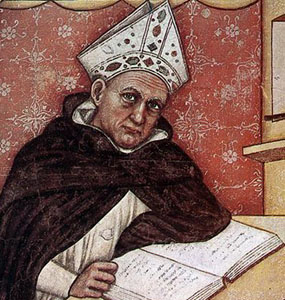 St Albert the Great reminds us that there is
St Albert the Great reminds us that there is
friendship between science and faith and that through their vocation to the
study of nature, scientists can take an authentic and fascinating path of
holiness.
which he carried out successfully, that is, the acceptance and appreciation of
Aristotle’s thought. In St Albert’s time, in fact, knowledge was spreading of
numerous works by this great Greek philosopher, who lived a quarter of a
century before Christ, especially in the sphere of ethics and metaphysics. They
showed the power of reason, explained lucidly and clearly the meaning and
structure of reality, its intelligibility and the value and purpose of human
actions. St Albert the Great opened the door to the complete acceptance in
medieval philosophy and theology of Aristotle’s philosophy, which was
subsequently given a definitive form by St Thomas. This reception of a pagan
pre-Christian philosophy, let us say, was an authentic cultural revolution in
that epoch. Yet many Christian thinkers feared Aristotle’s philosophy, a
non-Christian philosophy, especially because, presented by his Arab
commentators, it had been interpreted in such a way, at least in certain
points, as to appear completely irreconcilable with the Christian faith. Hence
a dilemma arose: are faith and reason in conflict with each other or not?
is one of the great merits of St Albert: with scientific rigour he studied
Aristotle’s works, convinced that all that is truly rational is compatible with
the faith revealed in the Sacred Scriptures. In other words, St Albert the
Great thus contributed to the formation of an autonomous philosophy, distinct
from theology and united with it only by the unity of the truth. So it was that
in the 13th century a clear distinction came into being between these two
branches of knowledge, philosophy and theology, which, in conversing with each
other, cooperate harmoniously in the discovery of the authentic vocation of
man, thirsting for truth and happiness: and it is above all theology, that St
Albert defined as “emotional knowledge”, which points out to human
beings their vocation to eternal joy, a joy that flows from full adherence to
the truth.
2 new Blesseds added US liturgical calendar
At their annual
meeting, the US bishops voted to have add to the US liturgical calendar Blessed
John Paul II and Blessed Marianne Cope, both are optional liturgical memorials
in the proper of saints. October 22 is designated to honor Blessed John Paul and January 23
for Mother Marianne.
date of the person’s death, which in Mother Marianne’s case was Aug. 9, 1918.
However, that date is the feast of St. Teresa Benedicta of the Cross (Edith
Stein), who died Aug. 9, 1942. Jan. 23 is the optional memorial in the United
States for St. Vincent de Paul. That date was transferred from Jan. 22 so that
the U.S. church can observe the Day of Prayer for the Legal Protection of
Unborn Children — which itself shifts to Jan. 23 when Jan. 22 falls on a
Sunday.”
USCCB Religious Liberty committee and consultants finalized
The USCCB Ad Hoc Committee on Religious Liberty headed up by Bishop William Edward Lori announces the bishops and consultants:
Ten bishops and 10 consultants were named to the committee in early November.
New members are Bishop John O. Barres of Allentown, Pa.; Archbishop Charles J. Chaput of Philadelphia; Bishop Daniel E. Flores of Brownsville, Texas; Archbishop Wilton D. Gregory of Atlanta; Archbishop John C. Nienstedt of St. Paul and
Minneapolis; Bishop Thomas J. Olmsted of Phoenix; Bishop Thomas J. Paprocki of Springfield, Ill.; Archbishop Thomas J. Rodi of Mobile, Ala.; Archbishop J. Peter Sartain of Seattle; and Cardinal Donald W. Wuerl of Washington.
Consultants include Carl Anderson, supreme knight of the Knights of Columbus; attorneys Kevin Baine, Philip Lacovara and L. Martin Nussbaum; Father Raymond J. de Souza, a columnist and priest of the Archdiocese of Kingston, Ontario;
Richard Garnett, associate dean and professor of law and political science at the University of Notre Dame; John Garvey, president of The Catholic University of America; Mary Ann Glendon, Harvard Law School professor; Judge Michael
McConnell, Stanford University Law School professor; and Mary Ellen Russell, executive director of the Maryland Catholic Conference.
Lori said we need to have “a new appreciation for religious liberty and a renewed determination to defend it.”
As mere commentary, the lay members of this committee are impressive.
Remembering the End: the Schola Dominicana features musical works from many periods, November 20
Claim the Truth of Christ, says Archbishop Dolan in USCCB address November 14, 2011
You can read Archbishop Dolan’s presidential address in its entirety elsewhere; here I offer a few points from the address to reflect upon:
…our most
pressing pastoral challenge today is to reclaim that truth, to restore the
luster, the credibility, the beauty of the Church “ever ancient, ever new,”
renewing her as the face of Jesus, just as He is the face of God. Maybe our
most urgent pastoral priority is to lead our people to see, meet, hear and embrace
anew Jesus in and through His Church.
Because, as the chilling statistics we
cannot ignore tell us, fewer and fewer of our beloved people — to say nothing
about those outside the household of the faith — are convinced that Jesus and
His Church are one. As Father Ronald Rolheiser wonders, we may be living in a
post-ecclesial era, as people seem to prefer
a King but not
the kingdom,
a shepherd with
no flock,
to believe
without belonging,
a spiritual
family with God as my father, as long as I’m
the only child,
“spirituality”
without religion
faith without
the faithful
Christ without
His Church.
Continue reading Claim the Truth of Christ, says Archbishop Dolan in USCCB address November 14, 2011
Benedictine All Souls
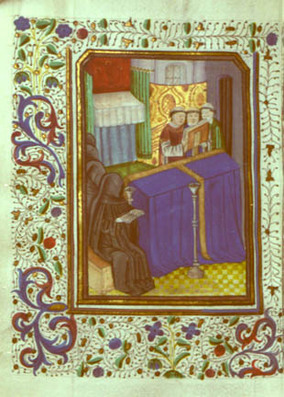 In Benedictine communities around the world today’s Liturgical Observance is offered for the souls of all Benedictine monks, nuns, sisters and Oblates in purgatory.
In Benedictine communities around the world today’s Liturgical Observance is offered for the souls of all Benedictine monks, nuns, sisters and Oblates in purgatory.
The Commemoration of the Faithful Departed is Benedictine in origin established by Saint Odilo at the Abbey of Cluny in 998.
Ad Limina of New England bishops 2011
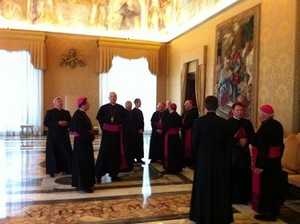 There’s not been lots of details revealed about the recent Ad Limina of New England’s 18 bishops. That may be because most of the meetings are private affairs between a bishop –or a group of bishops– and the Pope and his 12 key Vatican collaborators. The pilgrimage in Rome happened 3-9 November. The two New England Metropolitans, Cardinal O’Malley and Archbishop Mansell, led the bishops with the coordinating help of Bishop Evans.
There’s not been lots of details revealed about the recent Ad Limina of New England’s 18 bishops. That may be because most of the meetings are private affairs between a bishop –or a group of bishops– and the Pope and his 12 key Vatican collaborators. The pilgrimage in Rome happened 3-9 November. The two New England Metropolitans, Cardinal O’Malley and Archbishop Mansell, led the bishops with the coordinating help of Bishop Evans.
Belmont Abbey College files suit against government
A great example of religious freedoms being trampled is what’s happening with Belmont Abbey College. This is exactly what Archbishop Dolan and Bishop Lori are working on with the new Ad Hoc Committee of the USCCB on Religious Freedom (see previous posts linked on the right).
Defining the Church’s charitable mission
Today, Pope Benedict spoke to the volunteers who work with the Cor Unum group led by Cardinal Robert Sarah. He defines very clearly charitable work. Pay attention Communion and Liberation people!!!
I am grateful for the opportunity to greet you as you meet under the auspices of the Pontifical Council “Cor Unum” in this European Year of Volunteering.
Let me begin by thanking Cardinal Robert Sarah for the kind words he has addressed to me on your behalf. I would also like to express my deep gratitude to you and, by extension, to the millions of Catholic volunteers who contribute, regularly and generously, to the Church’s charitable mission throughout the world. At the present time, marked as it is by crisis and uncertainty, your commitment is a reason for confidence, since it shows that goodness exists and that it is growing in our midst. The faith of all Catholics is surely strengthened when they see the good that is being done in the name of Christ (cf. Philem 6).
For Christians, volunteer work is not merely an expression of good will. It is based on a personal experience of Christ. He was the first to serve humanity, he freely gave his life for the good of all. That gift was not based on our merits. From this we learn that God gives us himself. More than that: Deus Caritas est – God is love, to quote a phrase from the First Letter of Saint John (4:8) which I employed as the title of my first Encyclical Letter. The experience of God’s generous love challenges us and liberates us to adopt the same attitude towards our brothers and sisters: “You received with paying, give without pay” (Mt 10:8). We experience this especially in the Eucharist when the Son of God, in the breaking of bread, brings together the vertical dimension of his divine gift with the horizontal dimension of our service to our brothers and sisters.
